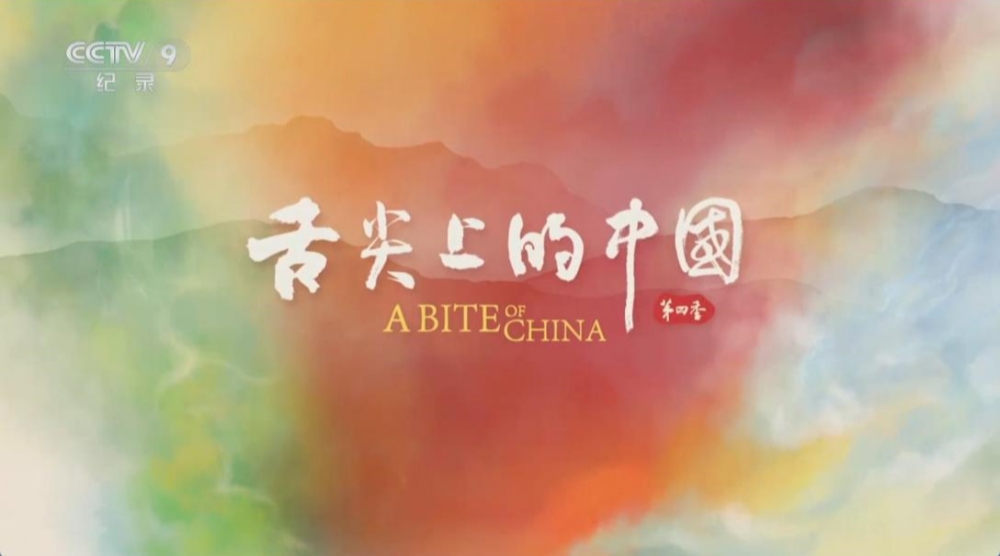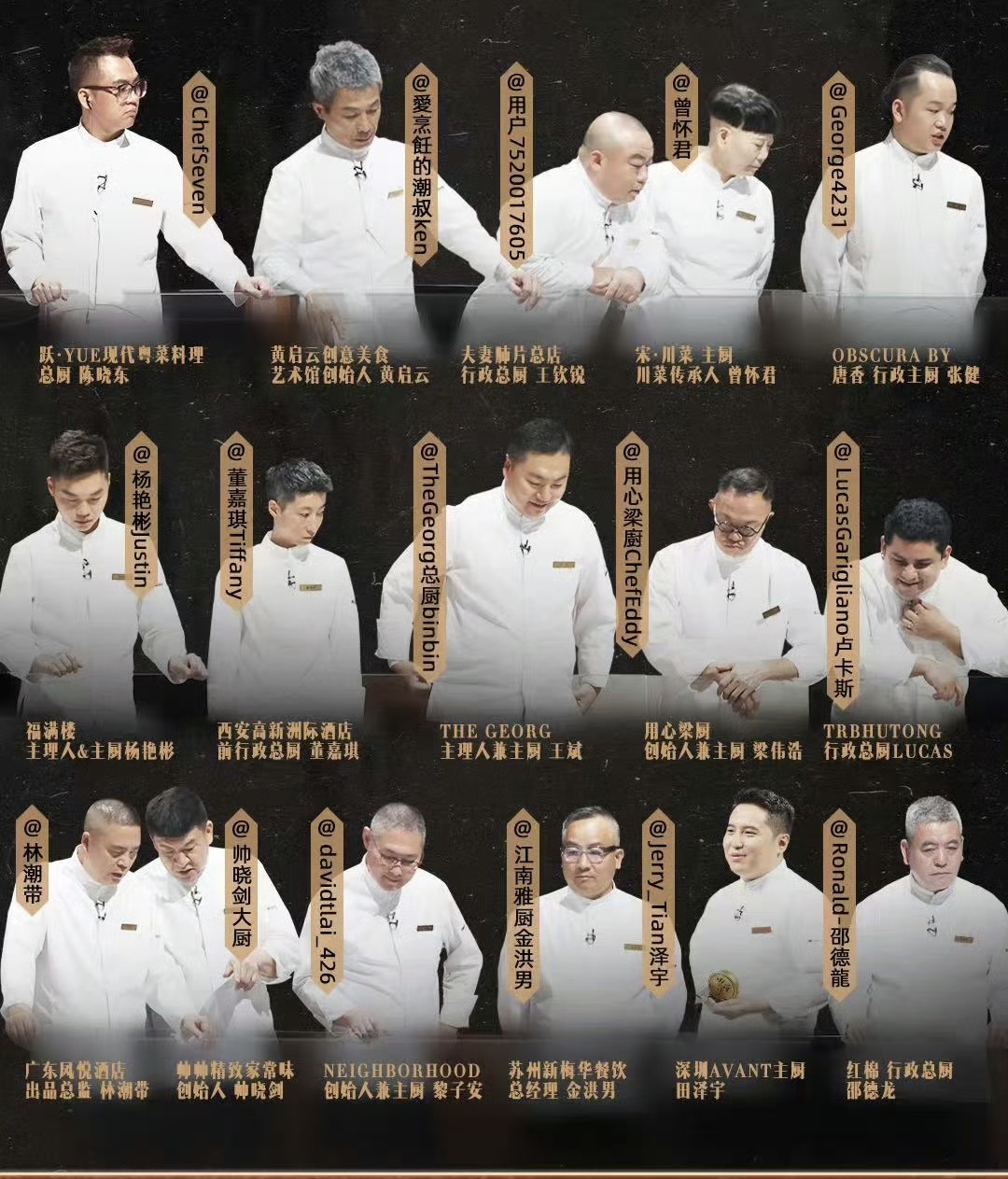
When I heard that the fourth season of A Bite of China was about to be aired, I looked up the history of previous broadcasts. It was 13 years ago (2012) that A Bite of China became a hit and the title became a popular word. Even since the third season was aired (2018), it has already reached the "seven-year itch".
Looking back, this documentary series, which has gradually become somewhat forgotten, filmed food from all over China in the first three seasons. Although it cannot be said that it has been exhausted, but compared with food documentaries of the same theme, what newness can this long-awaited fourth season bring?

A Bite of China Season 4
Judging from the first episode of the fourth season, some of the advantages of the previous seasons are still continued.
Chinese cuisine has always been about “color, aroma and taste”. Limited by the limitations of television media, since the first season, A Bite of China has obviously focused on the “color” that people can see, such as the Huizhou stinky mandarin fish in the first season or the roasted lamb with red willow branches in the second season, both of which are mouth-watering.
In this season, a common dish of lettuce can be made into a fence shape by the skill of Huaiyang chefs, which is really a visual enjoyment. On the other hand, some narrations can also be called golden sentences, such as "Everyone has a pair of hands, why do some people become masters", "Life is like cooking, the heat is the key", "Hands are the extension of the soul, the tentacles of the soul" and so on.

Lettuce cut with the basket flower knife technique
In fact, the first episode of the fourth season is titled “Unique Skills,” which seems to be a different perspective from the previous three seasons. As the film says, “No matter when, making it by hand is the highest table courtesy for the Chinese,” which is also in line with the atmosphere of the Chinese New Year.
Although the line "I have nothing special, only my hands are skilled" in "The Oil Seller" is already well known, when such "unique skills" are shown in the film, it is still a bit surprising and fresh. In addition to the Huaiyang knife skills, the scene where the Ningbo old man first appeared and "swung" the red crab on the beach with a special Bagua iron hook is really like the reappearance of "The Oil Seller". In addition, the knife skills of the Huaiyang chef and the scene where the Tainan fishermen remove the bones of the milkfish and keep the whole fish are also impressive.
Of course, one minute on stage takes ten years of hard work off stage. The old man in Ningbo practiced "swinging" potatoes with an iron hook for ten years at home before he could swing crabs, which is a perfect example of this saying.

Beach Crab
As the saying goes, heroes are not judged by their origins, and brave generals are always chosen from the ranks. The ingredients that use these "unique skills" are not found in high-end restaurants, but are authentic civilian food. For example, shrimp paste made from red crab is a daily side dish for Ningbo people, Taixing's sesame cakes are a civilian breakfast like Lanzhou ramen, Zigong's "salty cuisine" kidney slices are from small street restaurants, and even "milkfish belly porridge" or "milkfish belly" made from "milkfish" is also a civilian delicacy in Tainan.
In contrast to this urban atmosphere, many characters that appear in the episode "Unique Skills" use local dialects to varying degrees. The Wu dialect of Ningbo, the Cantonese dialect of Qinzhou, the Jianghuai Mandarin of Taixing and the Southwestern Mandarin of Zigong appear one after another, reflecting the local flavor of the food from one aspect.

Milkfish Ball Soup
Of course, the other side of the strong "rural flavor" is the challenges they face in the wave of modernization. Even in a big city like Shanghai, there have long been lamentations that the traditional snack "Tiger Paw" is hard to find. In nearby Suzhou, there are hundreds or even thousands of Suzhou-style pastries recorded in historical records. How many of them can be bought and eaten today? The "unique skills" in "A Bite of China" are also facing such a dilemma.
The 60-year-old man who used the iron hook to swing the crab is the youngest person who has this unique skill. Taixing's traditional spherical oven is also the only one in the world and has no branches. The dilemma of lack of successors is self-evident. Not to mention, the knife skills that Huaiyang chefs once took pride in are also facing the impact of mechanization. The film shows a scene of mechanized shredded dried vegetables, which are cut quickly and well, making Yangzhou's famous chefs have to admit defeat.
How can exquisite but ancient traditional handicrafts cope with the impact of modernization? This is naturally a somewhat serious topic. As a documentary, A Bite of China does not intend to make a serious analysis, but it vaguely answers the question with examples in the film. It is true that the efficiency of mechanized shredded pork is beyond human reach, but the visual effects displayed by the chef's varied knife skills are beyond the reach of monotonous industrial machines.
On the other hand, the accelerated pace of social life has made young people unwilling to eat milkfish with too many bones, which has given rise to the demand for deboning. However, deboning often requires cutting the whole fish into pieces, and in the eyes of experienced fish farmers, "if the fish is not a whole fish, it is not a fish", so there is a unique deboning technique that is like performing a surgery - the bones are removed and the fish is still intact. It seems that the current machines cannot do this.
Differentiation is one aspect, and the other aspect is to look to tradition for answers. Another "down-to-earth" part of the "Unique Skills" episode is the appearance of a typical dish that is now controversial online, as if "it is not worthy of its reputation" - Hangzhou's "West Lake Vinegar Fish". Zhou Mi's "Wulin Jiushi" in the Southern Song Dynasty once recorded that Song Gaozong Zhao Gou tasted "Song Sao Fish Soup" in Lin'an. Yuan Mei's "Suiyuan Food List" in the Qing Dynasty also had a "Vinegar Fish", which may have a relationship with "West Lake Vinegar Fish". Obviously, a dish that has been passed down for so long must have its rationale. After all, as the film says, "It can only be passed down if it tastes good."

The mixed reputation of West Lake Vinegar Fish
The story of how a Hangzhou chef improved and revived the "West Lake Vinegar Fish" in the film reminds us of the story of a young chef recreating the long-lost famous dish "Fuli Duck" in the comedy film "Little Moon Tower" 40 years ago. The hardships behind the 72nd version of the West Lake Vinegar Fish are awe-inspiring, and the secret of the inheritance of the West Lake Vinegar Fish discovered from the ancient recipe - "crab flavor" - makes people salivate and want to go and taste it as soon as possible.
Judging from the opening episode alone, the fourth season of A Bite of China did not disappoint. After all, there are still many treasures of the Chinese food world that were not shown in the previous seasons of documentaries. As long as the right perspective is switched, the audience can still feel fresh.


